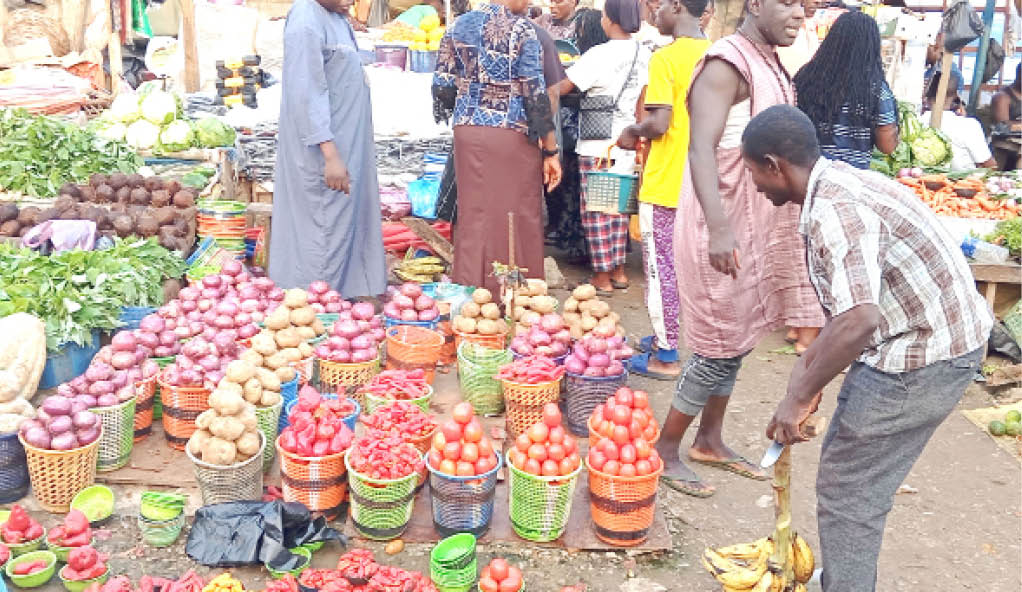Farmers and the federal government have disagreed over the recent drop in prices of food items across the country.

Many of the farmers and their associations, who spoke to newsmen, cited what they described as massive importation of food items recently approved by the government as the cause of the price crash.
But the Minister of State for Agriculture and Food Security, Aliyu Sabi Abdullahi, attributed the development to the various incentives introduced by the present administration to boost local production.
This is just as farmers have also expressed worries over the soaring cost of agricultural inputs which, according to them, is making food production increasingly difficult.
Farmers, FG disagree over drop in food prices
They told newsmen that they had held on to old stock, hoping to sell at higher prices to cushion earlier losses.
The government had, in September 2024, opened a 150-day duty-free window for the import of essential grains such as rice, maize, sorghum and wheat.
The July–December 2024 waiver was aimed at reducing the prices of essential food to provide relief to millions of Nigerians struggling with high living costs.
However, the import, which continued until January 2025, forced the prices of major grains, including wheat, millet, sorghum rice and maize, to plummet below production cost.
As a result of this, a large number of farmers who made significant financial investments in the production of grains are still losing money, and some of them are still trapped with old stock.
However, the minister, Abdullahi, said the government had yet to release the food items it imported. Answering questions from journalists during the World Food Day celebrations in Abuja, he said the government was aware of the impact of the drop in food prices and that it was working to mitigate it.
“We are fully aware of some of these dynamics, but let me make it very clear that, of course, we are looking at food security for our citizens, that is the overall interest of government. And if food is available, accessible, but not affordable, whoever is involved in the non-affordability will tell you it’s not food secure. Yet, we want an economy and a country where everybody is inclusively included in whatever we are doing.
“No one is left behind. So, what the government is doing is, ever since we came on board, we did not hide our intention to see that the prices of food come down to a level that is affordable.
“Now, what has happened is that from 2023, we went into massive production through the National Agricultural Growth Scheme and Agro-Pocket Programme. We injected a large volume, almost more than 500,000 metric tons of wheat, including maize, cassava, and all the other commodities that we promoted.
“This year, we also have a marginal increase, which means we are ramping up production. Now, the volume of food that is produced is responsible for the drop in prices,” he explained.






